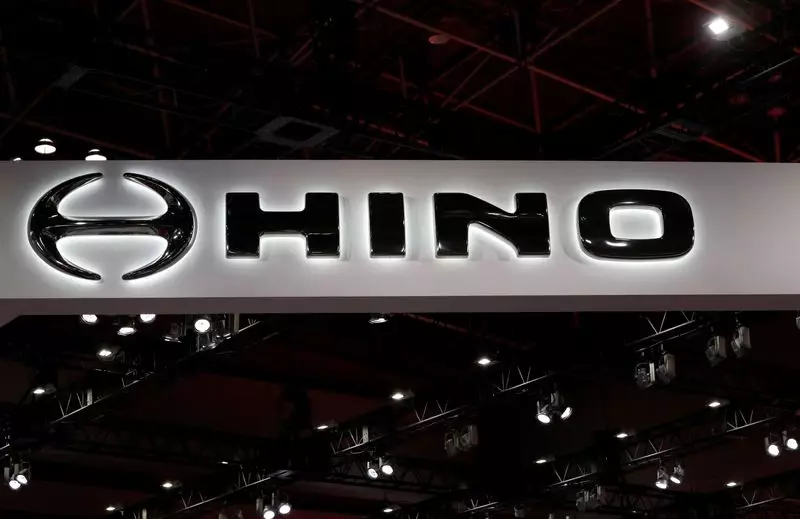In a significant escalation of accountability within the automotive industry, Hino Motors, a subsidiary of Toyota, faces a daunting financial and ethical reckoning following a $1.6 billion settlement with U.S. authorities over violations of diesel emissions regulations. This case has reopened discussions about corporate responsibility and the ongoing challenge of environmental compliance in an industry prone to transgressions.
Hino Motors is set to plead guilty to multiple counts of fraud tied to the unlawful sale of over 105,000 diesel engines that did not meet U.S. emissions standards. This transgression spans from 2010 to 2022 and implicates the company in systematic deception to circumvent regulatory measures. The agreement, still pending judicial approval, outlines a criminal penalty of approximately $521.76 million, supplemented by $442.5 million in civil penalties and an additional $236.5 million allocated to the state of California. Such figures compel attention to the financial consequences of unethical practices; far from mere fines, they indicate a pivotal moment for Hino as it confronts the repercussions of its actions.
The genesis of this issue traces back to a 2022 report commissioned by Hino itself, revealing that the company had been manipulating emissions data for a prolonged period, with some activities rooted as far back as 2003. The narrative indicates that Hino’s leadership engaged in a concerted effort to cheat emissions testing, fostering an environment where compliance was sacrificed for competitive advantage. Assistant Attorney General Todd Kim’s remarks on the falsified data underscore the severity of these violations—characterizing them as egregious offenses against environmental, consumer protection, and import laws.
This settlement echoes broader themes of corporate malfeasance that have marred the auto industry over the past decade. Similar to the fallout from Volkswagen’s notorious emissions scandal, Hino’s case underscores a troubling pattern where the pursuit of profit supersedes ethical responsibility. Volkswagen’s admission of using “defeat devices” that manipulated emissions results serves as a cautionary tale; Hino’s situation invites parallels about the cultural flaws within automotive corporations regarding environmental stewardship.
The repercussions of Hino’s actions extend beyond financial penalties. The Environmental Protection Agency (EPA) has emphasized the magnitude of pollution stemming from Hino’s non-compliance, pointing to the significant air quality implications for communities across the U.S. In response, part of the settlement includes a $155 million mitigation program aimed at offsetting the environmental damage caused by excess emissions. This program will focus on replacing outdated marine and locomotive engines, an inward-looking solution that strives to rectify past wrongs through positive action.
Additionally, a $144.2 million recall program to rectify emissions issues in heavy-duty trucks serves as both a corrective measure and a reminder of the company’s ongoing liabilities. These moves signify Hino’s recognition of its responsibilities to the public and the environment, albeit under duress.
In light of this turmoil, Hino’s President, Satoshi Ogiso, has publicly committed to revamping the company’s internal culture and enhancing oversight measures to prevent future infractions. His statement reflects a push towards building a more robust compliance framework, although skepticism remains regarding whether these initiatives will yield meaningful change or merely serve as window dressing to placate regulators and shareholders. Fundamentally, the effectiveness of these reforms hinges on Hino’s ability to change not just its practices, but its corporate ethos.
As industries face mounting pressure to meet stringent environmental standards, Hino Motors’ settlement should serve as both a warning and a roadmap. Companies must not only comply with regulations but embody the principles of sustainability and accountability in their business models. The road forward is inevitably steep, and Hino’s journey stands as a crucial case study in the pursuit of an ethically oriented corporate paradigm that respects both market dynamics and environmental imperatives.
While Hino Motors has taken a significant step in addressing past wrongs with this settlement, the scale of the violations leaves a lasting impression on the auto industry’s commitment to ethical governance. The lessons learned from this experience will undoubtedly influence future dialogues on corporate responsibility as the industry navigates the challenges of environmental compliance.

